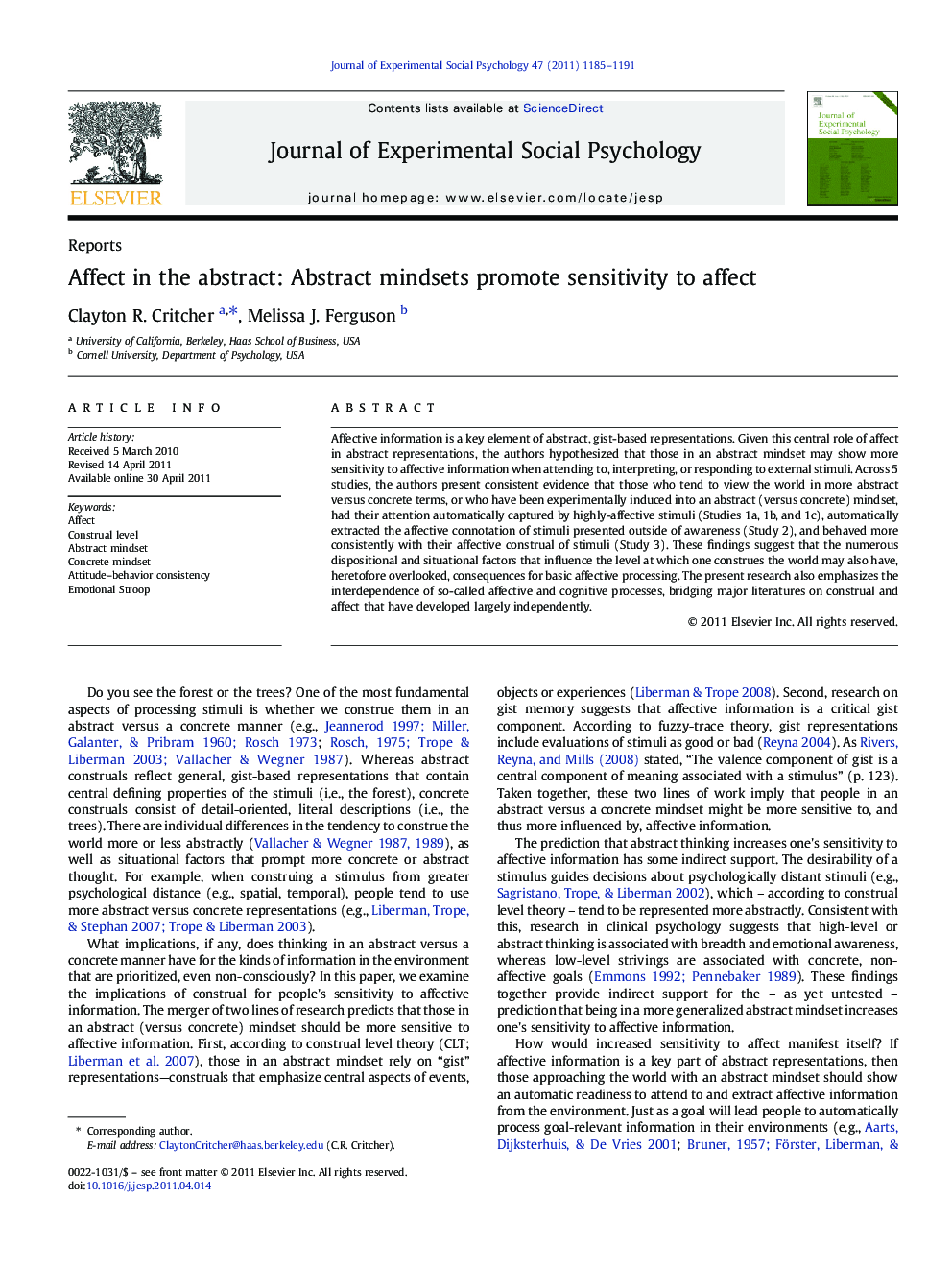| Article ID | Journal | Published Year | Pages | File Type |
|---|---|---|---|---|
| 947985 | Journal of Experimental Social Psychology | 2011 | 7 Pages |
Affective information is a key element of abstract, gist-based representations. Given this central role of affect in abstract representations, the authors hypothesized that those in an abstract mindset may show more sensitivity to affective information when attending to, interpreting, or responding to external stimuli. Across 5 studies, the authors present consistent evidence that those who tend to view the world in more abstract versus concrete terms, or who have been experimentally induced into an abstract (versus concrete) mindset, had their attention automatically captured by highly-affective stimuli (Studies 1a, 1b, and 1c), automatically extracted the affective connotation of stimuli presented outside of awareness (Study 2), and behaved more consistently with their affective construal of stimuli (Study 3). These findings suggest that the numerous dispositional and situational factors that influence the level at which one construes the world may also have, heretofore overlooked, consequences for basic affective processing. The present research also emphasizes the interdependence of so-called affective and cognitive processes, bridging major literatures on construal and affect that have developed largely independently.
Research highlights► People who tend to think (or who have been experimentally led to think) abstractly (versus concretely) showed stronger emotional Stroop effects. ► Abstract (versus concrete) mindsets promote non-conscious extraction of affective information and attitude-behavior consistency. ► Whereas concretely present stimuli have been shown to evoke stronger affective responses, abstract mindsets prioritize affective information.
